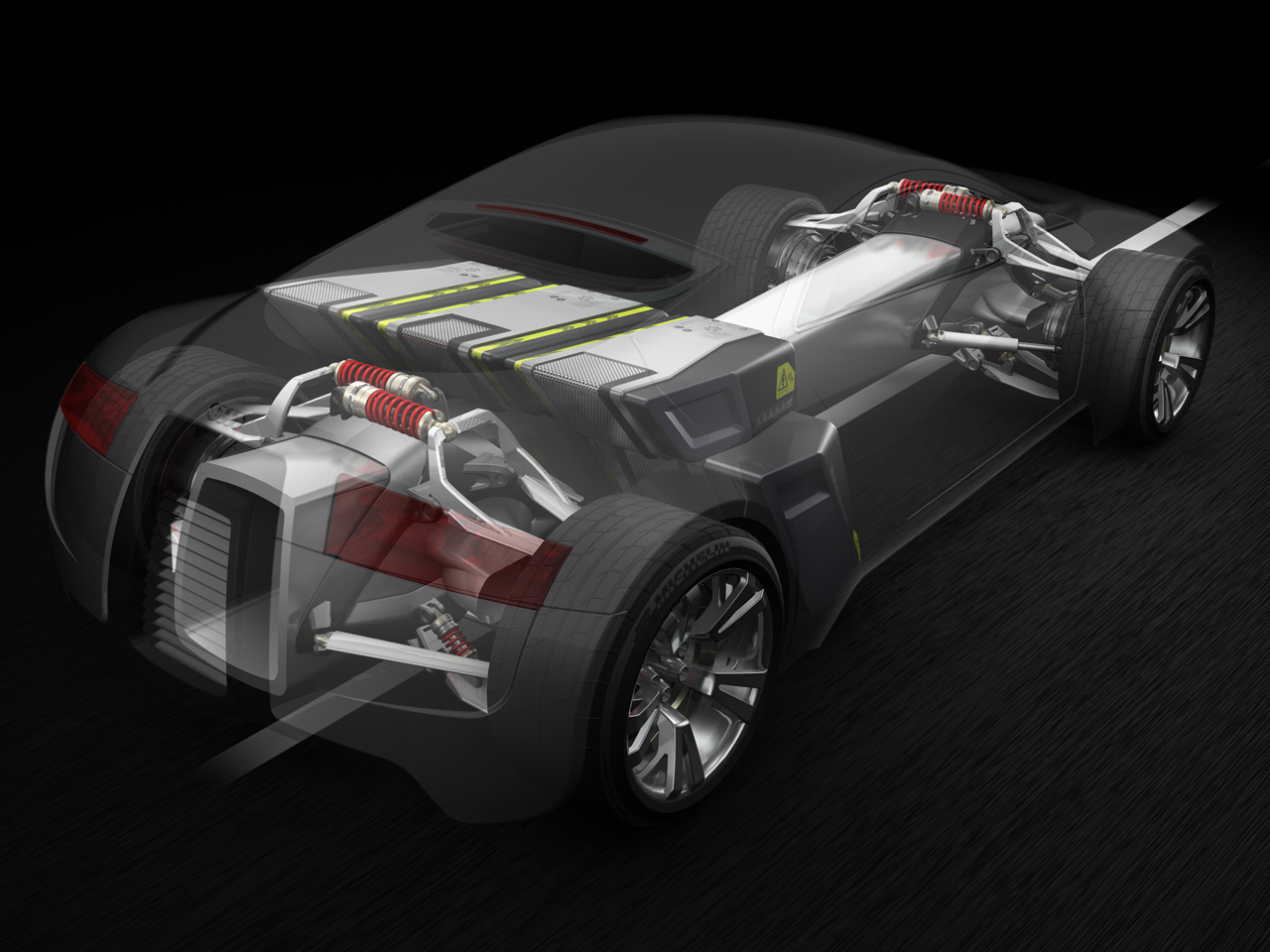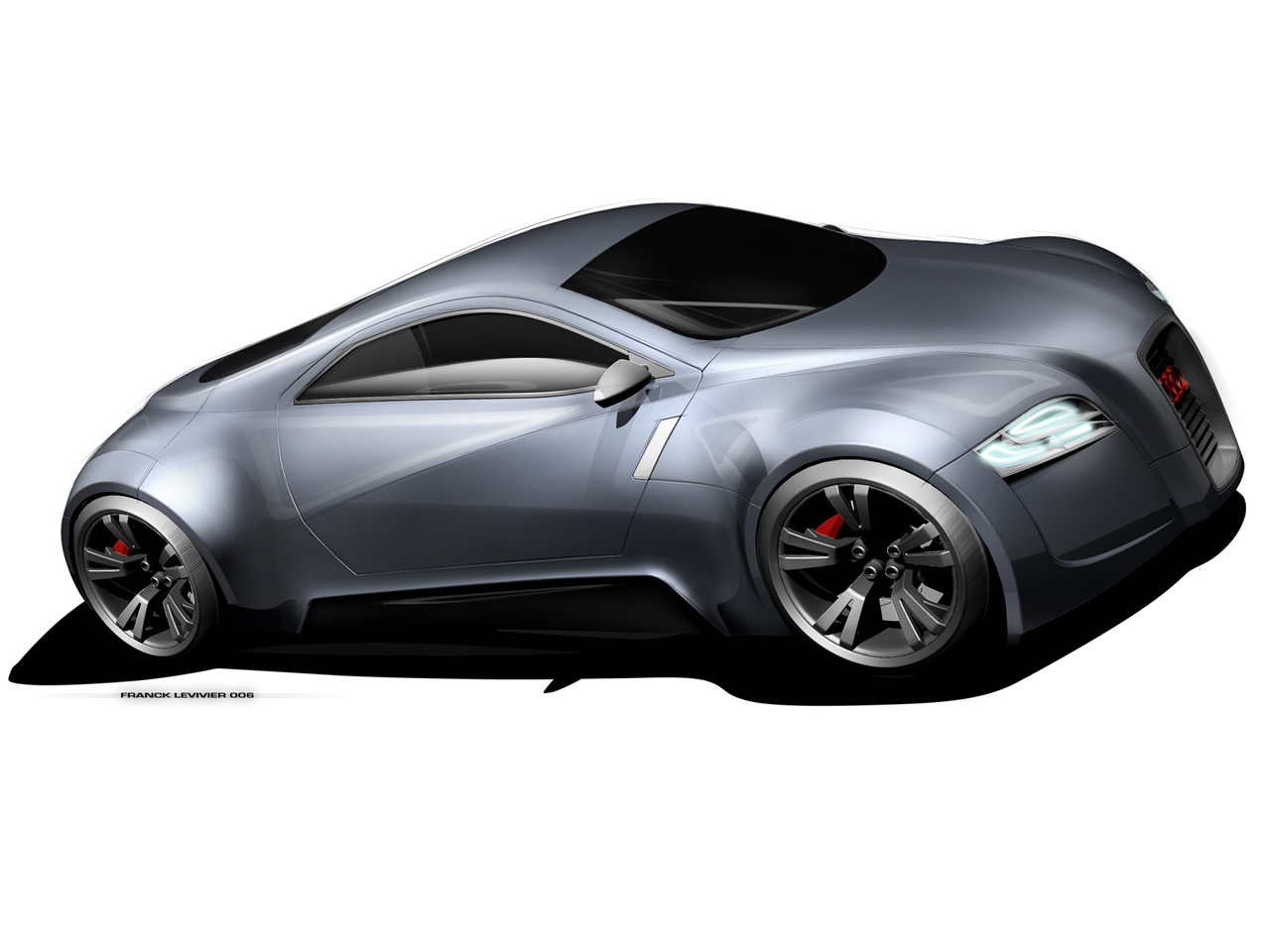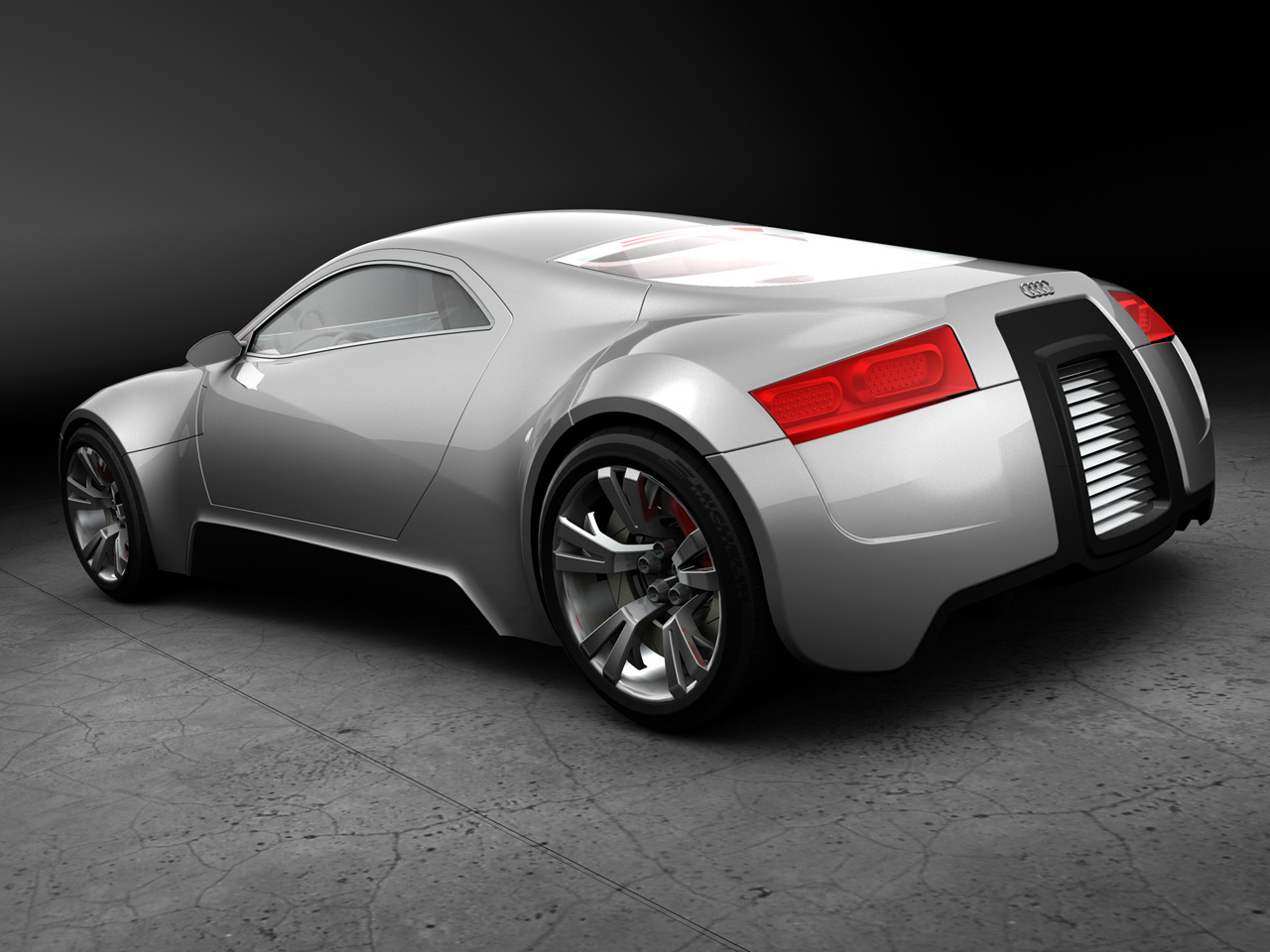2006 Audi R-Zero Concept
|
Price |
-- |
Production |
-- | ||
|
Engine |
4 electric in-wheel motors |
Weight |
approx 4850 lbs | ||
|
Aspiration |
-- |
Torque |
2168 lb-ft | ||
|
HP |
1091 hp @ 12900 rpm |
HP/Weight |
4.4 lbs per hp | ||
|
HP/Liter |
-- |
1/4 mile |
-- | ||
|
0-62 mph |
under 3 seconds |
Top Speed |
estimated 286 mph |
Combining sportiness
with a respect for the environment, the Audi R-Zéro illustrates that
extreme performance and reason are not contradictory. If anyone
thinks that an electric car is deprived of elegance and dynamism,
Audi R-Zéro is a battery-driven vehicle that can fulfill dreams and
arouse desires.
As oil prices continue to increase and the Protocol of Kyoto enters
application, the bio-energies face serious limitations. Our energy
future does not depend only on crude oil reserves. In the face of
climatic change and its ecological and human cost, the consumption
of hydrocarbons cannot continue at the current pace. It is necessary
to decrease and diversify our consumption. Transport is the
principal source of air pollution and oil consumption to a total
value of 50%.
The initial purpose for the elaboration of this concept was to
create a machine with demonic sensations by avoiding the
immoderation and the inconveniences that we know of the current
supercars, mainly in term of pollution. A concept with the image of
a muscular sports car, the Audi TT, and with performance equivalent
to that of the Bugatti Veyron, the whole works in harmony with our
environment and must join the perspective of 2010.
Aside from the production of the batteries themselves, this car is
respectful of the environment mainly due to its electric
motorization. The system of electric motorization transmits the
fabulous power and reactivity of the engine. It is in harmony
with the ecological challenge and meets the needs of the present
without compromising the capacity to satisfy the needs of the future
generations.
The R-Zero is an exceptional supercar benefiting from an outstanding
architecture. The electric motorization allows an original
hierarchical organization of the streams of air in order to to
control the behavior of the airflow around and inside the car. The
structure of the aerodynamic flow optimizes cooling of the motor and
the brakes, as well as generating steady aerodynamic support, all of
which is synonymous for performance.
The "Back single frame" is not a free aesthetic subtlety nor
deprived of functionality … An airstream connecting the 2 single
frames (back and front) is present inside in the car : This
structural column thus traverses the total length of the machine.
Technique drove the design and the technical constraints were not
subject to stylistic demands that, aside from the "Back single
frame", we have created a product which forms part of the lineage of
explosive motor vehicles. And in the end, we have an electric motor
car which does not look like an electric car.
This concept represents a future prospect coming from students of
the International School of Design, ISD France.
Design &
conceptualisation : Franck Levivier, transportation designer.
Modeling & rendering : Rémi Marchand & Pierre-Olivier Wagner,
digital designers.
For more information on the Audi R-Zero, http://audirzero.free.fr; also check out www.isd-up.com
Additional Details
Batteries
It is necessary to foresee 800 volts. The best batteries for this
application are those of the family " Lithium-Ion ". The sizing
criterion is the massique power : it is necessary to foresee 450
watts / kg. Thus approximately 1200 kg of batteries. 1200 kg of
battery + 4 engines of 85 kg more the car itself, we should be
around 2,2 tons.
Torque
Audi R-Zéro :
For 1 electric in-wheel motor, Maximal torque : 183 Nm or 135 lb-ft
@ 12900 rpm ;
Requiring speed reducer : ¼.
75.0 m/kg de couple par roue 735 Nm/542 lb-ft > 1 wheel
300.0 m/kg pour 4 roues 2940 Nm/2168 lb-ft > 4 wheels!
Bugatti Veyron 127.6 m/kg @ 2200 rpm - 1250 Nm/923 lb-ft
Ferrari Enzo 67.0 m/kg @ 5500 rpm - 657 Nm/485 lb-ft



